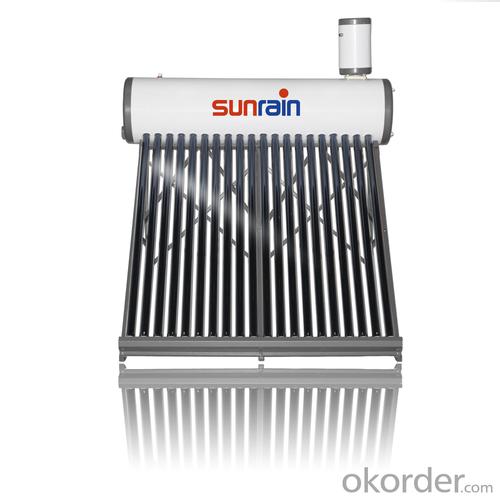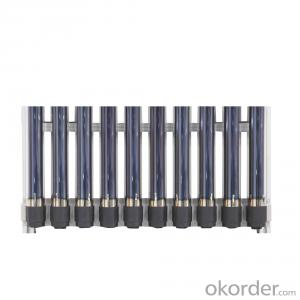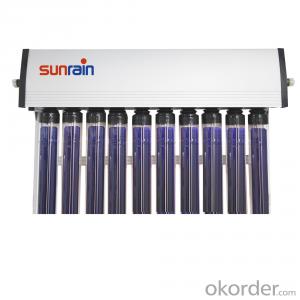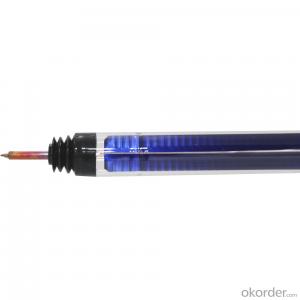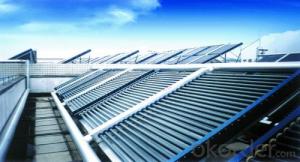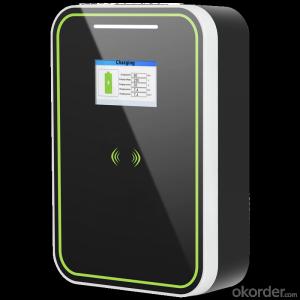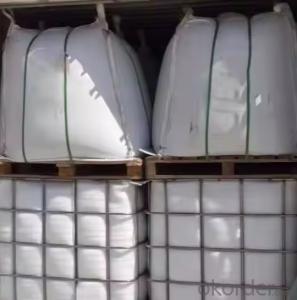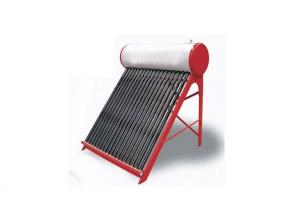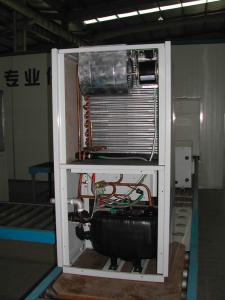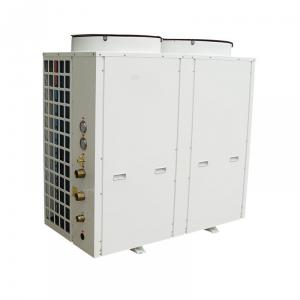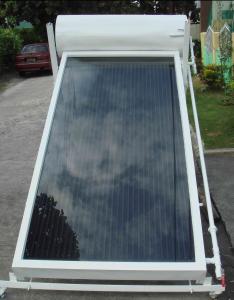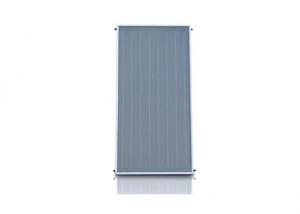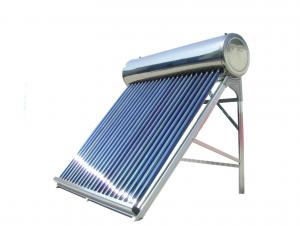Compact Solar Water Heater
- Loading Port:
- China Main Port
- Payment Terms:
- TT OR LC
- Min Order Qty:
- -
- Supply Capability:
- -
OKorder Service Pledge
Quality Product, Order Online Tracking, Timely Delivery
OKorder Financial Service
Credit Rating, Credit Services, Credit Purchasing
You Might Also Like
| Type | Evacuated Tube |
| Pressure | Unpressurized |
| Circulation Type | Other |
| Heating System | Thermosyphon (Passive) |
| Connection Type | Direct-Plug |
| Certification | CE, Solar Keymark, SABS |
| Model Number | TZ58/1800-10,15,20,24,30 |
| Recommend region | Asia, Africa, Latin America |
Key points
Inner tank: stainless steel SUS304-0.5mm
Vacuum tube: QB-AL-N/AL-47-1500/58-1800
Outer tank: painted steel-0.4mm/aluminum-zinc coated steel-0.45mm/stainless steel SUS304
Insulation: polyurethane
Frame: coated galvanized steel-1.5mm/stainless steel SUS430-1.5mm
- Q:Can a solar water heater be used for swimming pool heating?
- Swimming pool heating can be achieved by using a solar water heater. The way solar water heaters function involves harnessing energy from the sun to warm water. This warm water can then flow through the pool, increasing its temperature. Utilizing renewable energy from the sun, solar water heaters offer an environmentally friendly and cost-effective approach to pool heating. They are especially effective in regions with abundant sunlight year-round. However, in colder climates or during the winter season, a solar water heater may not be capable of reaching the desired pool temperature. In such instances, an additional heating system might be necessary. In conclusion, choosing a solar water heater for pool heating presents an energy-efficient and sustainable solution.
- Q:Can a solar water heater be used for large-scale water heating applications?
- Yes, a solar water heater can be used for large-scale water heating applications. By installing multiple solar collectors or panels, combined with a larger storage tank, it is possible to meet the hot water demands of commercial or industrial buildings, hotels, hospitals, or even entire communities. This renewable energy solution can significantly reduce the reliance on traditional heating methods, decrease energy costs, and contribute to a more sustainable and environmentally friendly water heating system.
- Q:How does the design of the solar panels affect the performance of a solar water heater?
- The design of solar panels directly impacts the performance of a solar water heater. Factors such as the size, efficiency, and orientation of the panels determine the amount of sunlight captured and converted into heat energy. A well-designed system maximizes the absorption of solar radiation, resulting in higher water temperatures and improved overall performance.
- Q:Are there different types of solar water heaters?
- Yes, there are different types of solar water heaters. Some common types include passive solar water heaters, active solar water heaters, and batch solar water heaters. These types vary in terms of their designs, installation methods, and how they heat and store water using solar energy.
- Q:How does a solar water heater affect the water pressure in a building?
- A solar water heater does not directly affect the water pressure in a building. The water pressure remains the same regardless of the type of water heating system used. However, if a solar water heater is integrated with a separate water storage tank, it may affect the pressure in that tank, but it does not impact the overall water pressure within the building.
- Q:How does the efficiency of a solar water heater compare to an electric water heater?
- The efficiency of a solar water heater is generally higher than that of an electric water heater. Solar water heaters utilize renewable energy from the sun to heat water, which is a more sustainable and cost-effective option in the long run. On the other hand, electric water heaters rely on electricity which is often generated from non-renewable sources, resulting in higher energy consumption and associated costs. Additionally, solar water heaters can be designed to store thermal energy for use during cloudy periods, improving their overall efficiency.
- Q:Can a solar water heater be used to heat water for radiant floor heating?
- Yes, a solar water heater can be used to heat water for radiant floor heating. Solar water heaters use energy from the sun to heat water, which can then be circulated through pipes in the floor to provide radiant heat. This is an energy-efficient and sustainable way to heat water for radiant floor heating systems.
- Q:Can a solar water heater be used in areas with high levels of minerals in the water?
- Yes, a solar water heater can be used in areas with high levels of minerals in the water. However, it is important to regularly maintain and clean the system to prevent mineral buildup, which can affect its efficiency and performance.
- Q:Can a solar water heater be used in areas with limited access to solar tax credits?
- Yes, a solar water heater can still be used in areas with limited access to solar tax credits. While tax credits can provide financial incentives for installing solar water heaters, their availability may vary depending on the region or country. However, the primary benefit of a solar water heater is its ability to use solar energy to heat water, reducing reliance on traditional energy sources and saving on utility bills. Therefore, even without tax credits, a solar water heater can still be a cost-effective and environmentally friendly option for areas with limited access to solar tax incentives.
- Q:How does the cost of a solar water heater compare to a traditional water heater?
- The cost of a solar water heater is typically higher than that of a traditional water heater. While the initial investment for a solar water heater may be higher, the long-term savings and benefits can outweigh the additional cost. Solar water heaters use energy from the sun, which is a free and renewable resource, to heat water. This means that homeowners can save significantly on their monthly utility bills by reducing their reliance on expensive electricity or gas. Additionally, solar water heaters have a longer lifespan compared to traditional water heaters, resulting in lower maintenance and replacement costs over time. Furthermore, installing a solar water heater may make homeowners eligible for various tax incentives or rebates, further offsetting the initial cost. Overall, although the upfront cost may be higher, the long-term savings and environmental benefits of a solar water heater make it a cost-effective and sustainable choice.
1. Manufacturer Overview |
|
|---|---|
| Location | |
| Year Established | |
| Annual Output Value | |
| Main Markets | |
| Company Certifications | |
2. Manufacturer Certificates |
|
|---|---|
| a) Certification Name | |
| Range | |
| Reference | |
| Validity Period | |
3. Manufacturer Capability |
|
|---|---|
| a)Trade Capacity | |
| Nearest Port | |
| Export Percentage | |
| No.of Employees in Trade Department | |
| Language Spoken: | |
| b)Factory Information | |
| Factory Size: | |
| No. of Production Lines | |
| Contract Manufacturing | |
| Product Price Range | |
Send your message to us
Compact Solar Water Heater
- Loading Port:
- China Main Port
- Payment Terms:
- TT OR LC
- Min Order Qty:
- -
- Supply Capability:
- -
OKorder Service Pledge
Quality Product, Order Online Tracking, Timely Delivery
OKorder Financial Service
Credit Rating, Credit Services, Credit Purchasing
Similar products
New products
Hot products
Hot Searches
Related keywords

